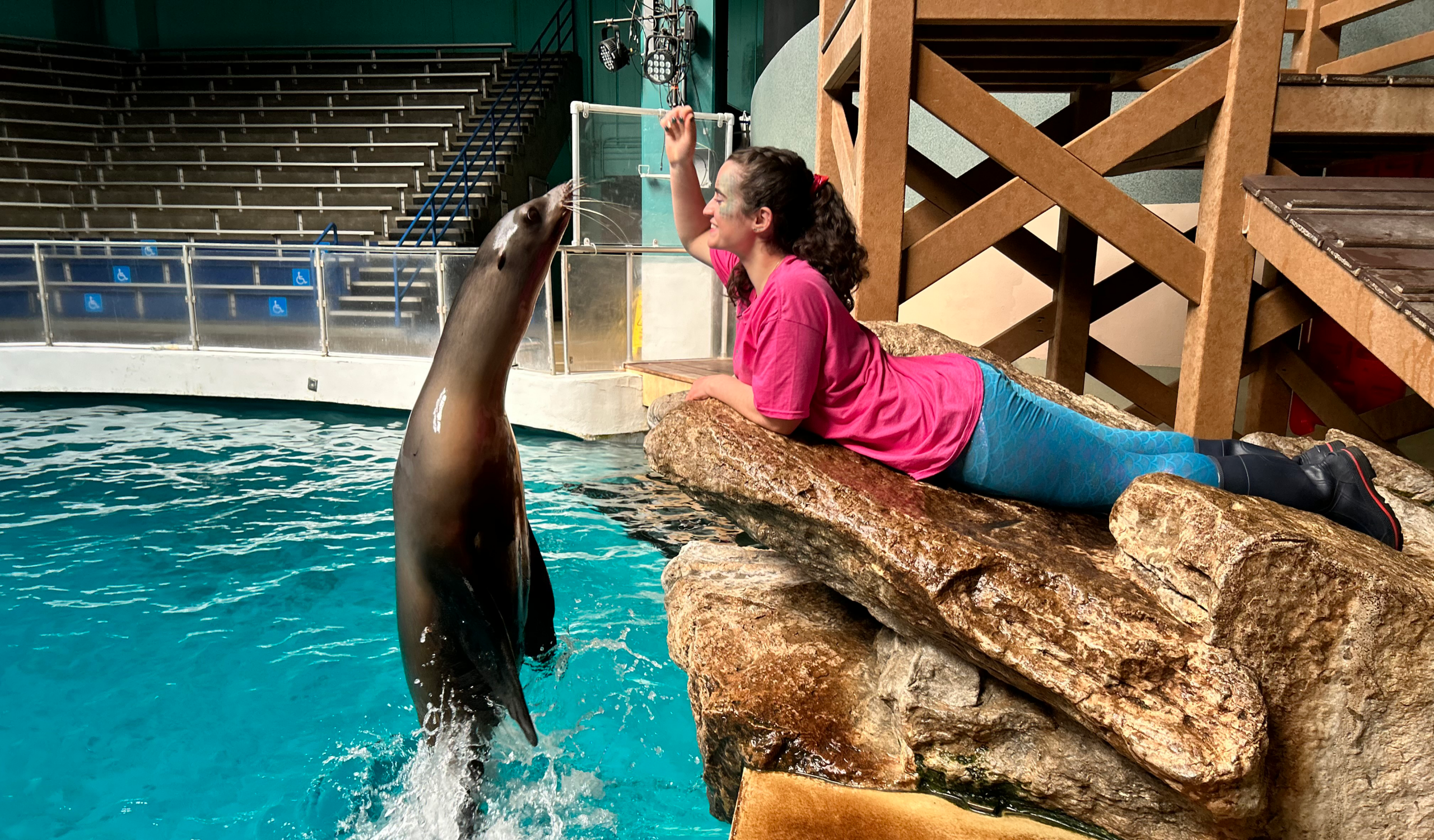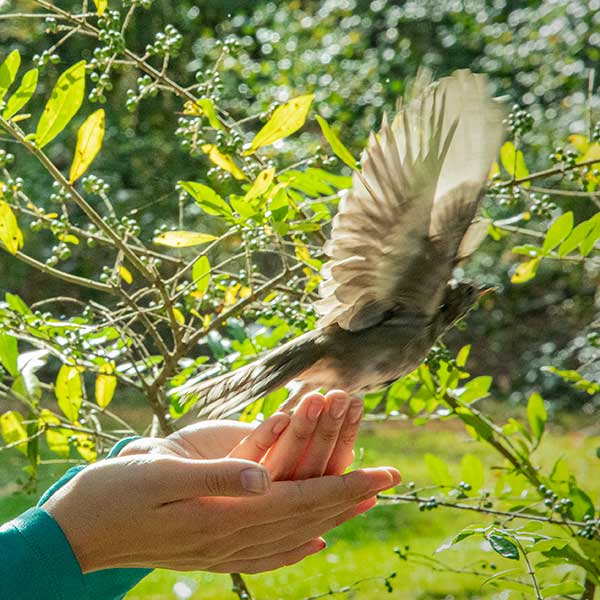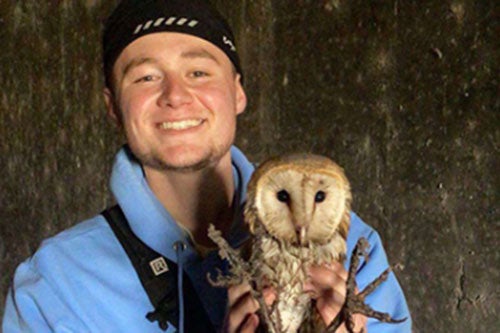
Your thinking about chickens is probably all wrong.
Most of us see them first and foremost as a food source, a commodity, scientists say. We regard them as not terribly intelligent, anxious, and flighty, lacking the stateliness of a bald eagle or the elegance of a swan. Lesser birds.
In fact, chickens are as cognitively and emotionally complex as many other birds and animals. “Chickens are a lot smarter than people think,” says Megan Rossilli ’23, who worked extensively with chickens as a student studying animal science and technology at the College of the Environment and Life Sciences. “At URI, we train chickens because they don’t instinctively like people, so they’re more of a challenge. If we were to train a dog, the dog wants to please you—not to be anthropomorphic about it,” Rossilli says.
Rossilli speaks from experience. She holds the distinction of teaching a chicken more behaviors than any other student in the history of the department.
“The number of programs and courses that we have in the animal science department at URI really allowed me to explore different fields—and different animals. And I discovered which animals I really wanted to work with,” Rossilli says.
Rossilli’s education also included two internships at Mystic Aquarium in Connecticut. The aquarium offered her the position of assistant trainer of California sea lions before she graduated last May. She accepted.
“I credit a lot of my success to Professor Justin Richard, who used to be a beluga whale trainer at Mystic Aquarium,” Rossilli says. “He helped me get my foot in the door at Mystic Aquarium and taught me how to train a chicken.”
Rossilli’s work with animals started nearly two decades ago, when she was a preschooler.
“I was four years old and would help my mom bottle feed squirrels or raccoons in our basement,” Rossilli recalls. “Seeing her compassion for animals really triggered that in me. My upbringing made me a big animal lover, and at URI I was exposed to such a diverse group of animals, starting with the animals on campus at Peckham Farm,” she recalls.
Positive feedback: how people and animals learn
Rossilli excelled in courses such as AVS 443, Advanced Methods in Applied Animal Behavior and AVS 440, a course on the physiology and behavior of marine mammals taught by Professor Justin Richard.
“Megan worked very hard to take advantage of every opportunity in the AVS program—both in and out of the classroom—to become a skilled zoo and aquarium animal care professional,” says Richard. “She is a gifted animal trainer who set the standard for excellence in AVS 443, where she trained a chicken using positive reinforcement techniques to perform the most behaviors I’ve ever seen a student train in a semester.”
Positive reinforcement is key, Rossilli says. “It’s the best way people and animals learn. If we give the chickens a stimulus they enjoy, they are more likely to continue that behavior in the future. I really enjoy learning the science behind how people and animals learn.”
Richard says Rossilli is an exemplary ambassador for the study of animal sciences.
“In her position as a sea lion trainer who will be on stage several times each day, she is going to inspire the next generation of people who care deeply about animals,” Richard says. “Her passion for her work radiates off of her in everything she does.”
In her time at URI, Rossilli also assisted URI President Marc Parlange’s wife, Mary, in the training of her flock of chickens: Honey, Netflix, Hulu, and Disney.
“Megan is a fantastic animal trainer!” Parlange says. “She was a great resource for me when I wanted to train my chickens to do simple tricks. She walked me through it, step by step, over the course of several sessions. It was enriching for all of us.”
Underpinning all of Rossilli’s work is a deep respect for the animal or animals she’s training. The California sea lions in her care are all rescues, injured animals that, even after recovery and rehabilitation, would not survive if released back into the wild. Climate change and plastics pollution are two major culprits. Zoos and aquariums provide a haven for injured animals and an opportunity for human beings to see and appreciate them, Rossilli says.
“I feel being at Mystic Aquarium allows me to be the voice for the animals that are living there and in the wild,” Rossilli says. “I want to use my voice to inspire people to care about the planet and being able to talk to people through a microphone during a show allows me to get my points across to a large audience.
“I believe connecting people with animals is the best way to help them.”
—Marybeth Reilly-McGreen


